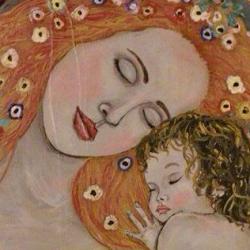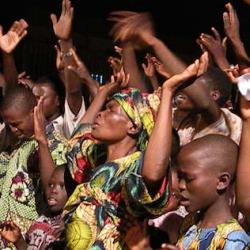God created man male and female, blessed them, and commanded them to be fruitful, multiply, and fill the earth (Genesis 1:28-29). Procreation is one of the most basic vocations of human beings.
The language of “fruitfulness” is originally used of the seed- and fruit-bearing plants called from earth on Day 3 of the creation week. That initiates a rich vein of imagery in which children are “fruit” that nourish, delight, refresh the “family tree” from which they come and, ultimately, themselves reproduce.
The dominion mandate isn’t cancelled by the fall, though it now lies under a curse. Eve is designated “mother of all the living” only after the fall (Genesis 3:20), a promise of continued fruitfulness after the expulsion from the garden, even after she has been warned that she will bear children “in pain.”
The foundational promise is a promise of a child. In the contest of “seeds,” the seed of the woman will triumph over the seed of the serpent (Genesis 3:15). Human destiny rests with a mother and a son. That the woman’s son is called “seed” draws on the agricultural imagery noted above, and also sets up for the promise to Abraham, a new Adam.
Abraham too is promised “seed,” multiplied like the stars of heaven and sand on the seashore (Genesis 22:17). Adamic command turns into Abrahamic promise: God will multiply Abraham’s children; the earth will be filled with children from this new Adam. Abraham, further, is promised a land in which to plant his seed (Genesis 12:1-7), a place where Abraham’s children can be fruitful. Land + seed will yield a garden land, Eden regained (in part).
At important junctures in biblical history, God begins to renew by giving a child to a childless couple. Abraham’s body is as good as dead, Sarai’s womb barren, but the Lord makes this dry ground fruitful, so that the covenant promise can carry on from Abraham to future generations. Rebekah is barren, and so is Jacob’s beloved Rachel.
Manoah’s barren wife becomes mother of the bombastic deliverer Samson (Judges 13), and barren Hannah gives birth to Samuel, the one “asked of God” (1 Samuel 1). Hannah’s pregnancy vindicates her over against her rival wife Peninah, but she sees her elevation as a sign of a broader stirring in Israel. In Hannah’s Magnificat, proud, fat men topple from their high places; the humble are lifted from the dust. Israel will experience a revolution, and the sign of this righting of Israel is the birth of a child.
“Barren woman gives birth” is the headline of Isaiah’s prophecy of restored Zion, who will end up with more children than the married woman (Isaiah 54), her children so numerous that she will have to extend the corners of her tent.
This narrative thread comes to a climax in Mary’s conception by the Spirit – Mary the new Eve, Sarah, Hannah, Zion. Like Isaac, Samson, Samuel, Mary’s son is the embodiment of promise, an effective sign of God’s final initiative to crush the serpent restore humanity to Himself.
This focus on children is ritualized in circumcision and Israel’s feasts. Applied to infant boys on the eighth day after birth, circumcision seals inclusion in the covenant (Genesis 17). Circumcised sons are not merely objects of God’s care, but agents in God’s program of cosmic and human restoration.
Children also share Passover (Exodus 12), Pentecost, and the Feast of Booths (Deuteronomy 12:10-12; 16:11, 14). A sign of the Lord’s hospitality to the children of His children, these “sacraments” are also part of a pedagogy (Exodus 12:26-27).
The Bible tells cautionary tales of rebellious sons (Samuel’s sons; Absalom and Adonijah, David’s sons) that highlight the need to shape children and expel folly by instruction and discipline (Proverbs; cf. Ephesians 6:1-4). Catechesis is summarized in Psalms and songs (e.g., Deuteronomy 32), taught to children as memorials of Yahweh’s signs and wonders and exhortations to obedience.
The Shema moves from a confession of Yahweh to a demand for undeviating love to an instruction to instruct: “You shall teach them diligently to your sons” (Deuteronomy 6:4-9).
Yahweh promises that Abraham’s children will be kings; mothers and fathers receive children as Yahweh’s princes, whom they train for future royalty, to become a new-Adamic people. “Princes” and “princesses” are, in turn, crowns to their grandparents (Proverbs 17:6). Fathers are the glory of their sons, but royalty also passes from wise children to parents.
















